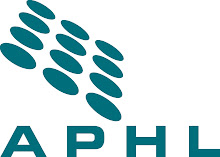By Peter Kyriacopoulos, Director of Public Policy, APHL
Strong governmental public health is capable of responding to the full array of diseases and other health threats that can cause harm to the people of this country. Public Health Emergency Preparedness (PHEP) funding offers one avenue of support, and there will certainly be others similarly targeted. PHEP provides funding to public health departments via CDC to build their capacity and capability to respond effectively to infectious disease outbreaks, natural disasters and other public health emergencies, including those that are willfully introduced.
The correct way to assure an effective and efficient governmental public health response to all threats is through dedicated and continuous federal funding. While there is not yet sustained federal funding for public health laboratories, it remains one of APHL's top policy priorities. Both the House and Senate versions of health reform legislation include provisions creating trusts or investment funds that go far to accomplishing this goal. Until they are enacted, governmental public health will be compelled to seek funding from any and all possible sources.
Thursday, March 4, 2010
Tuesday, March 2, 2010
Newborn Screening: Part 2
By Brad Therrell, Ph.D., Professor Dept. of Pediatrics, UTHSCSA Director, National Newborn Screening and Genetics Resource Center (NNSGRC)
Each year 15,000-16,000 newborns are identified with one of the core 29 conditions tested for using newborn screening. Tests are conducted by analyzing dried blood spots in order to prevent serious medical outcomes from certain congenital conditions.
Many states are considering evidence that points to the value of adding more conditions to the recommended core screening panel. The Secretary of Health and Human Services' Advisory Committee on Heritable Disorders in Newborns and Children (ACHDNC) recommends additional tests; the most recent is Severe Combined Immunodeficiency Disease (SCID), better known as 'Bubble Boy Disease'. Krabbe Disease, now screened for only in New York, is also being considered as a possible addition. Former Buffalo Bills quarterback Jim Kelly (Hunter's Hope Foundation) is actively seeking expanded newborn screening including the addition of Krabbe Disease which took the life of his son Hunter before newborn screening was available.
There have been inaccurate reports regarding the use of a baby’s DNA obtained from newborn screening. As mentioned previously, the newborn screening specimens are stored as dried blood spots, not as DNA. If DNA extraction is necessary and possible, there is usually a dissent process in place and there are educational materials about newborn screening distributed by every newborn screening program. In fact, the Secretary of Health and Human Services' ACHDNC is already hard at work considering national guidance on the issue of storage and use of dried blood spots.
It is important that everyone has the facts about newborn screening available to them. Regardless of the inaccuracies that exist out there, parents deserve to have factual information on the entire process.
--
The opinions expressed here represent those of the author and not APHL.
Each year 15,000-16,000 newborns are identified with one of the core 29 conditions tested for using newborn screening. Tests are conducted by analyzing dried blood spots in order to prevent serious medical outcomes from certain congenital conditions.
Many states are considering evidence that points to the value of adding more conditions to the recommended core screening panel. The Secretary of Health and Human Services' Advisory Committee on Heritable Disorders in Newborns and Children (ACHDNC) recommends additional tests; the most recent is Severe Combined Immunodeficiency Disease (SCID), better known as 'Bubble Boy Disease'. Krabbe Disease, now screened for only in New York, is also being considered as a possible addition. Former Buffalo Bills quarterback Jim Kelly (Hunter's Hope Foundation) is actively seeking expanded newborn screening including the addition of Krabbe Disease which took the life of his son Hunter before newborn screening was available.
There have been inaccurate reports regarding the use of a baby’s DNA obtained from newborn screening. As mentioned previously, the newborn screening specimens are stored as dried blood spots, not as DNA. If DNA extraction is necessary and possible, there is usually a dissent process in place and there are educational materials about newborn screening distributed by every newborn screening program. In fact, the Secretary of Health and Human Services' ACHDNC is already hard at work considering national guidance on the issue of storage and use of dried blood spots.
It is important that everyone has the facts about newborn screening available to them. Regardless of the inaccuracies that exist out there, parents deserve to have factual information on the entire process.
--
The opinions expressed here represent those of the author and not APHL.
Subscribe to:
Comments (Atom)




